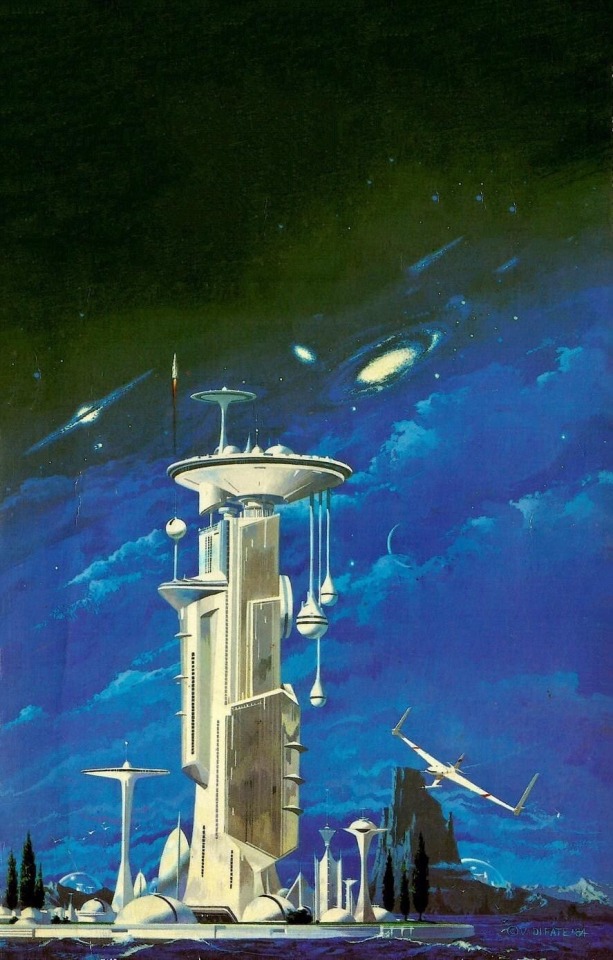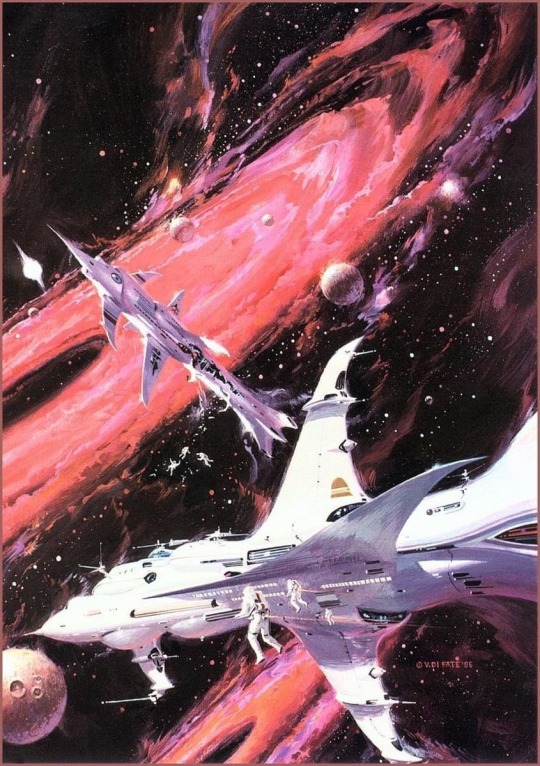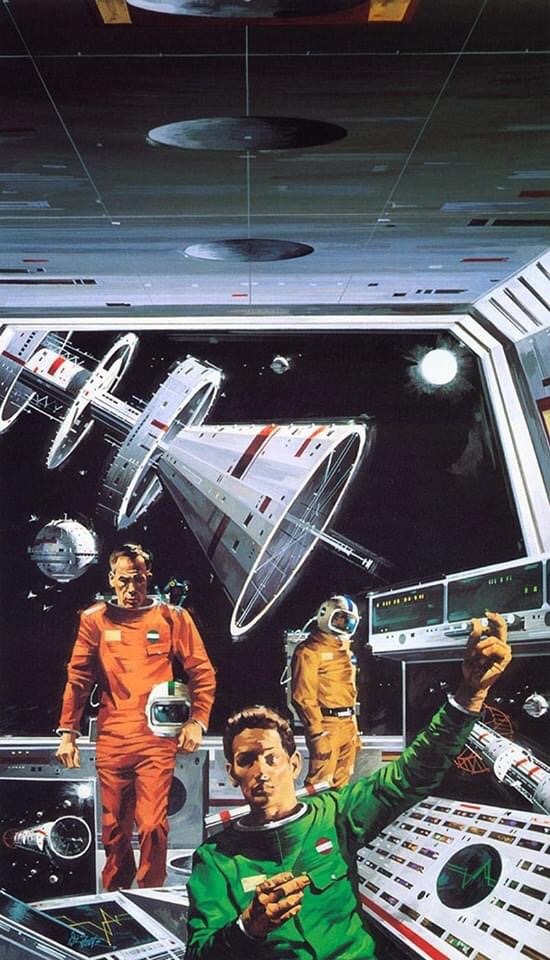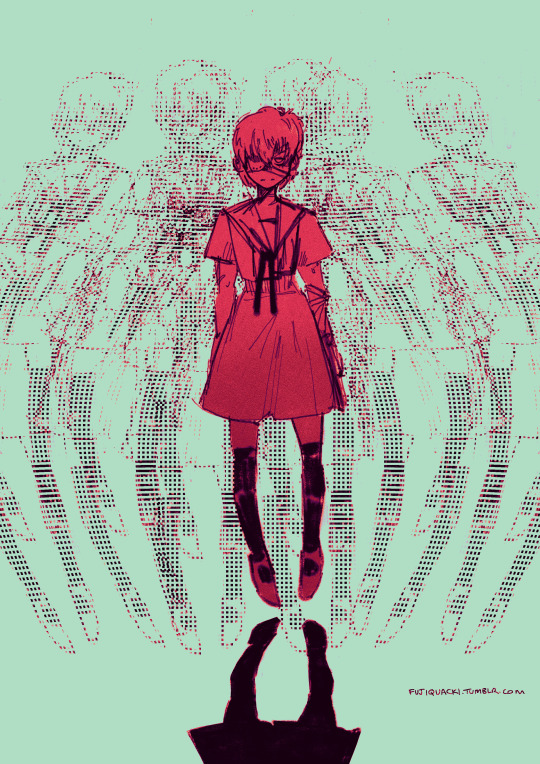Text
videos
going to have to start to learn to make things on my own because nothing feels right when im not making things so maybe i shall make a video
1 note
·
View note
Photo
how do things that are technically still here feel like ethereal dreams?

660 notes
·
View notes
Text
review | shin godzilla

Thankfully, no one is calling this a subversion/deconstruction of the summer blockbuster, just because it has Anno’s name slapped on to it. Which isn’t to say that Shin Godzilla plays out like any old summer blockbuster, including its American counterpart (Legendary’s Godzilla) as well as that movie’s inspiration, Spielberg’s Jaws. The ‘intelligent blockbuster’ the former aspires to be and the latter cosily occupies is characterised mostly by restraint. Enticing people into the theatre by the hordes with the carrot of a giant monster wreaking havoc, with the stick that carrot is attached to being character development and the study of how real people would respond to a shark attack or a giant nuclear lizard creature emerging from the depths.
Shin Godzilla goes a few layers deeper. It eschews the individual-community-state-military quadrangle that the American ‘intelligent blockbuster’ typically situates itself around to hone in on the question of how the executive as a branch of government, more specifically the executive of a modern day Asian nation-state mired as it is in the geopolitics of a world where American interventionism is a given, would handle a crisis of this nature.
Which isn’t to say that there aren’t characters or even character arcs. It’s just that those arcs all subsume into the political ambitions and work ethics of the several characters that occupy it, several of whom you will recognise more by face than by name as they flit in and out of screen. They are stratified across age, rank, background and ambition with subtle layers of friction mixed with camaraderie between them.
To that end, it is an obvious and unabashed parable about how complex bureaucratic structures, even when manned by people who are doing their jobs as best they can, are not best equipped to handle sudden crises. And as ubiquitous as the big guy is, Godzilla is almost a hand-crafted metaphor to represent a crisis Japan could face. He is earthquake, tsunami and nuclear disaster all rolled into one.
As such, he (or perhaps it, as Godzilla here seems to transcend terrestrial biology and reproductive patterns, sexual or asexual: the very last shot of the film is bizarrely telling of this) is apparently entirely mo-cap CGI, though designed to look like a puppet, which is a clever way of tricking people who wouldn’t do their research into thinking that it is a phenomenally well made puppet rather than shoddily put-together photo-realistic CGI. It goes through several phases of evolution as the film progresses, shifting from a strange, googly eyed quadrupedal thing that drags itself across coastal suburban Tokyo to an upright behemoth of a dinosaur with veins of magma snaking across its body to eventually a much larger biped with a nuke-lazer in its throat that can sever buildings right in half.
And while it does toy with the Gareth Edwards narrative (and SFX budget-crunch) strategy of playing hide-the-monster, and doesn’t really show you a whole lot of Godzilla at one stretch, instead of using inane drama about “one soldier’s quest to save his white wife and blonde little children” as buffer, it uses committee meeting after cabinet meeting after group huddle before you get to see another glimpse of it. Which is appropriate because all those meetings end up being about deciding what to do about the walking disaster and usually, by the time a decision has been made after all the vacillation and cross-checking, it is already too late.
But it is rarely as simple as all that. The political commentary is far more complex than ‘bureaucracy bad because slow’. There is a subtle yet measured analysis of how everyone under it uses the system to try as far as possible to push things on to a fall guy and lay the blame off their own shoulder and that the system can only really move forward if a handful of people at various levels with enough daring to be willing to take the fall take risks and move things forward. Even the trolley problem is slipped in there (it comes with the territory, perhaps). And then the movie gradually shifts gear to consider more interesting questions of US interventionism in ‘natural’ disasters of this kind, whether what the US wants is really what is best for everyone, the very real neoliberal economic noose with which this hegemonic system is upheld and how sometimes, it is important for a country to just do as it pleases.
This is complicated material to cover, especially with the slow rise of Japanese right-wing nationalism and its cultural tendrils snaking into manga and anime like Attack on Titan. The film has accrued its fair share of academic criticism about a propensity towards fashy patriotism. And there’s no going around it, the film is patriotic about Japan. But it is a patriotism that squares itself not even against the USA but against a certain strain of US policy-making. It is even (perhaps too) optimistic about the prospects of the US and Japan working together towards Japan’s best interests instead of the former. France and some unnamed Nordic country emerge as helpful allies in the struggle. Fo better or for worse, Japan’s Asian neighbours are barely given a mention (with the exception of China but even there, somehow without malice or vitriol).
It puts forward a relevant political concern: if a disaster like Godzilla takes place and Japan happens to have a means of combatting it without having to resort to America’s decision to drop nukes on it for the ‘good of mankind’, can it manage to do that? In Shin Godzilla, it does, but just by the skin of its teeth. And for all its veneer of optimism towards a brighter future for a more independent Japan (Toho does make a fair bit off money off the very American Legendary Pictures deal, after all), the movie ends technically with the US in the shadows, shaking its cartoon-villain fist. “I’ll get you next time.”
The movie manages this political-thriller genre so well you forget how difficult this feat is to pull off. A lot of that comes down to a perfect marriage between Higuchi’s creature effects (it is a joy to see Godzilla dump blood-red nuclear waste out of its gills before continuing to crawl along, even in its earliest phase) and Anno’s typical attention to detail when it comes to the cut, shot composition and character development. Though it devolves into trumpet and snare kitsch music towards the end, Shiro Sagisu’s score repurposes motifs from Evangelion to thrilling effect. And the performances are nuance, measured, honed in and tight.
An authentic Japanese Godzilla movie has to a parable about the dangers of nuclear war. But nuclear war has changed. It is a post Iraq world, a post Arab Spring world, a world entirely entrenched in globalisation, the shock doctrine and a consistently rapacious United States foreign policy. Shin Godzilla asks important and complicated questions. One would question its message by wondering what real life disaster or event would force the US to drop a nuclear bomb on a metropolitan city outside its territory for ‘the good of mankind’. The prospect sounds fantastical.
But is it?
#shin godzilla#godzilla#kaiju#hideaki anno#tokusatsu#US#Japan#politics#international relations#global politics#state
15 notes
·
View notes
Conversation
ennui
self: is it okay for me to be here?
other: *silence*
self: *screams*
1 note
·
View note
Text
review | neon genesis evangelion and the end of evangelion

Midway through Evangelion, I wasn’t quite sure what all the hype was about but I was drawn in by the strength of the character development. Even as it bucked under a lot of these anime tropes and archetypes (which I later came to realise Eva had a heavy hand in popularising, if not creating), its characters managed to wriggle their way out from under them to be fully formed and human to a fault. But I never suspected it of introducing character arcs in any way distinct from the traditional forward facing plot of self-realisation, surmounting their problems and eventually growth.
Evangelion didn’t quite play out that way.
Evangelion is concerned primarily with three things:
- Human Instrumentality or the concept of collapsing the boundaries that keep individuals separate, moving forward towards a collective consciousness as a human goal.
- The trauma parents inflict on their children and how a large part of life is just a desperate attempt to be recognised as valid by your parents which it tackles through themes of Freudian psychoanalysis.
- How sometimes, in order to surmount loneliness, connect with others and truly grow as a human, the entire world would have to change first and even then, there’s no guarantee that it would work. Evangelion provides two endings. One where it does and one where it doesn’t.
The Technique
There’s just something about nineties anime that works for me, even when it’s done shittily. And Eva is anything but shitty. The battle sequences between increasingly abstract and fantastical Angels and the Evangelion Units are lush, fast and detailed but there’s a lot more to be said about the extent to which Eva invests in stillness and calm, allowing you to linger with the characters on long walks, stargazing sessions, elevator rides and a number of other stiller experiences.
Eva also treats you to apocalyptic imagery, motifs from Christianity and Kabbalah and surreal landscapes that are as gorgeous as they are grotesque. It’s an art style that changes before your very eyes as the story progresses from a more run of the mill mecha narrative into something quite different.
Evangelion’s music and sound design also needs mentioning, with a richly detailed soundscape that captures sweltering heat, the constant screeching of crickets and the thrums and beeps of engines and computers. The way scenes are blocked and edited is also unique and masterful with fast choppy cuts that make the distinctions between stillness and motion stark.
The Writing
To its credit, even before Eva descends (or ascends) into existentialist mindfuckery, its a perfectly engaging, edge-of-your-seat mecha Sci-Fi teen drama. And even after it decides to make the shift to abstract deconstruction (the very narrative form of animation breaks down before your eyes), it never quite lets up on its commitment to the intricacies of that Sci-Fi narrative. And as such, it sits up there with the greatest Sci-Fi stories, tackling the kind of questions the medium is made for such as about AI and Ethics, the limits of bio-engineering, human potential and hubris, the origin of humanity and its ultimate destiny. It does this through mecha battles, espionage, political intrigue, romance, sex, violence and relationships.
The Characters
Evangelion is in many ways the anti-mecha anime. It takes, say, the reluctant teen protagonist and turns him into a tortured, insecure figure who find his identity in pleasing others and earning their praise. It takes the benevolent father inventor and turns him into a manipulative fiend. Few of the characters who occupy screen-time in Evangelion are left bereft of a complex backstory which probes the motives behind their (oftentimes bizarre and irrational) actions. And at the heart of that study is the underlying theme of the desire to live a life to please others verses a life lived for the self.
Shinji’s vacillation is detestable to the viewer who is used to the kind of dramatic arc where a character eventually pulls themselves up by the bootstraps and takes charge of their own destiny. That turning point never quite seems to come for him, though he gets closer and closer. Most other characters are suspended in some part of this crisis. And the solution is the dissolution of all boundaries that identify the self as the self. The unification of all humanity into a collective consciousness. The question is whether this should be accepted or rejected. It is, in the end, a choice.
Neon Genesis Evangelion was a life changing work of art for me. I still cannot stop thinking about it. Perhaps the dillema its characters are pushed through resonated with me more than I expected. It is a story about the individual in the community and whether it is actually possible to live a life in service to humanity or to others without the boundary between self and other breaking down entirely. It is also about whether, if given the choice to dismantle that boundary, one would accept or reject it.
It is about the bleak loneliness of being imprisoned in the self.
#evangelion#neon genesis evangelion#end of evangelion#anime#anime review#movie#movie review#tv review#art review#review#reviews
32 notes
·
View notes
Text
I wish I had dreams.










Works by Vincent Di Fate.
539 notes
·
View notes
Photo
an aesthetics of progress in the twenty first century is nebulous and illusory. the world has become cyberpunk, just perhaps not respectfully to our bated breath. but everyone under the one percent, including the animals, are all just wading through the refuse of the capitalist behemoth. when we look at hegel we need to look at him sideyed. it’s a little like a gif. it looks like we’re moving forward but we just might be driving around in circles.

‘return’
5K notes
·
View notes
Text
to love me
It is Class Eleven. We are in a small, cramped makeshift classroom because our usual room is being fumigated for bed bugs. I am in a complicated relationship with a girl, who I like desperately and cloyingly as I tend to do and who doesn’t, I think, feel the same way about me. She calls me over to help her with understanding something from the textbook and looks at me for a while as I gesticulate to try and explain. “You know,” she says. “There’s something about the way your hands move. It just…feels really gay, sometimes.”
This happened five years ago.
-
A body, like being, is a little complicated to explain. For Descartes, who I immediately admired for breaking everything down and building it all back up again, there are three substances in the world: there is God who is unknowable but creates and sustains all things, there is mind, the attribute of which is thought and there is body, the attribute of which is extension. For him to prove that the body is distinct from the mind is a long, uphill battle but it is one he fights tooth and nail, even if it doesn’t make sense. The word soul flits in, eventually. There has to be something, something other than a bag of bones that will ultimately rise to the heavens or sink beneath the sea.
-
I remember playing a lot of imaginary games when I was a child. I remember being a cook, a soldier, a spy, an explorer, a villain. These were malleable times and not a lot was required to entertain myself. I didn’t really need props or costumes. In a pinch, I could curl up on the sofa with my eyes closed and imagine all sorts of things. I have been trying to remember what I thought about my own body. I don’t remember thinking about it very much. This never fails to make me nostalgic.
I also don’t remember when I began to eat so much. I always ate fast, never savouring anything. Food was a comforting thing to work my way through as I did something else. It made me feel distracted and safe. By the time I was twelve, I was fat.
I remember looking at myself in the bathroom once, at the swell of my stomach that distended even at the sides and the loose flabs of my cheeks and chest. Rolls of fat would bounce distinctly from my body as I jumped a few times, like a soul. I don’t remember if I was disgusted just yet but I wasn’t happy.
-
For the Christians, there is no rationalising about the soul. It obviously exists. Everything about the body is mired in a materiality that is not only temporary but malignant and hostile. Material existence for the Christian is a wasteland we deserve for the sinners we are where every little shred of beauty is grace: a free gift from God. Every flower, every tree.
And beautiful people? They were gifts to be given to each other, I supposed. Do not covet your neighbour’s house.
For the Christian, self hatred is a given. It is a more honest position to be in than those who have been blinded by common grace. If we see ourselves as ugly, our bodies and our surroundings, we can see the absolute necessity of giving ourselves to Christ who will take us to a new world where all things are beautiful.
This calls for a different kind of self love. A love we give ourselves through Christ. The only reason we love ourselves now is to be because Christ loves us, a love that is absolute and unconditional and, according to the Christian, the only love that is true.
-
When I was eight or nine, everyone around me transitioned from playing the sorts of games I liked, like tag or hide-and-seek, to the sorts of games I found out I wasn’t particularly good at, like football and cricket. I couldn’t coordinate my movements with what I needed to do and what I was seeing, I was slow and not particularly graceful and on top of everything, I wasn’t particularly interested. It didn’t seem fun.
I wasn’t bullied for this, not by that group of friends. But a very pragmatic system came into being. I was made to be goalie whenever possible but when everyone wanted a real game, they’d make me the referee or the umpire. I won a football through a lucky draw and it was the best one in the colony. They had to call me. I had to go. I realised very soon that being a referee was consolation. I leaned against the wall and watched. I remember wanting to cry, sometimes.
Once, for losing an eraser or something, my father told me I wasn’t to go down and play for a week. Everyone came up to the house to find out why I wasn’t there. My father explained to them and I listened from my door. “Oh,” one of them said. “Can we have the ball, then?”
-
I really hit it off with someone I matched with on Bumble. We couldn’t stop talking. She’d send me little photos from her day: oranges in the sunshine, flowers, trees and other things like that. We met soon and only ordered drinks because neither of us was very hungry and we talked for a good couple of hours. I dropped her off where she needed to go and went back thinking things went fabulously.
She became terse after that, responding almost monosyllabically. I dropped it almost immediately, not wanting to be annoying. It had to be because of my body. She had to have been absolutely disappointed by it.
-
If there is mind and body, thought and extension, I am absolutely assured about my mind. I have never been nervous about my ability to speak and write coherently, lucidly and on my best days, beautifully. I am confident in being able to be witty and appropriate. I have never been assured about my body. The best I’ve been able to hope for is that I am somehow just impressive enough on all the other counts for my body to be tolerated. For it to be ignored. For a ‘yes, but he’s alright, all things considered’.
-
It is Class Eight and a free period. Most of the class is empty, for some reason or the other, except for a small group of people. I am reading a book and occasionally participating in whatever conversation they’re having. One of them from across the room suddenly says “David, walk from here to the front of the room and back.”
I ask why.
“Just do it, you’ll see.” I look around. I haven’t been paying attention to the conversation for a while. Everyone is watching me, smiling.
I slowly get up and comply. They laugh and nod. “See, I told you,” she says. “He walks funny.”
They make me run as well, which is even funnier. I cannot for the life of me remember why I submitted to this, why this was something I was willing to do.
“It’s his hands as well, he’s so weird with them.”
-
The problem with the love of Jesus is that it is generalised. You are encouraged to reach out to Him with your specific problems through prayer and he responds through what you read from a collection of different literature, the latest of which was written two-thousand years ago by a Jewish man addressing a number of churches in what is modern-day Turkey. You can rest assured in Jesus’ unconditional love for you but He cannot delight in your condition.
He cannot admire your arms, the way you walk, the way you speak. But to seek this sort of admiration is shallow. It is, in the words of C.S. Lewis, ‘like an ignorant child who wants to go on making mud pies in a slum because he cannot imagine what is meant by the offer of a holiday at the sea’.
So you’re stuck.
-
Once in school, a friend of mine from band was telling me that I should practice more. “See, we’re not like those other guys. We’re ugly. If we don’t have skills we can’t depend on them to want us around for any other reason.” I wanted to tell him I never thought he was ugly. I didn’t. I agreed. I thought maybe he needed me to, that If I excluded myself from the class he so casually put us in, that he placed himself so absolutely into, that it would break him.
In the end, when I went home, I believed I was ugly too.
-
In college, the girl I was dating once complimented my t-shirt. “You have nice arms,” she said, and then moved on to something else.
That was two years ago. Sometimes, when I want to cry, I hold on to that memory and it makes things better.
-
Objectivity and subjectivity are important parts of this discussion. I’m sure philosophers have a lot to say about aesthetics but it is too difficult and cyclical to read through all of that. And people in science are just philosophers who’ve prohibited themselves from talking about souls. So, they give me heuristics I can actually use.
There is a golden ratio, apparently, that makes things beautiful. Things like pinecones and paintings and faces.
And the cold logic of it makes sense. A lean body, a pared down one, one not burdened by excess, one that is strong and capable is obviously an attractive one. This must be objectively true.
But there are so many other things I tend to like. The curve of someone’s neck, their arms in the sun, their teeth, their cheeks. These bodies may not fit any sort of objective mold, they may all even be different. But I like them and am attracted to them. Can I believe that this might extend back to me too?
The problem, then, is one of empathy. Do other people think the same way I think? What is going on inside your head?
-
In college, the girl I was dating once told me: “You know, there’s a lot of things you can fix if you tried?”
“Fix?”
“Yeah, like your weird walk and your posture and things like that. I’m sure if you think about it you can do it properly.”
She has never met the group of people from Class Eight who told me the same thing. She doesn’t even know they exist. So, this thing about my walk, it must be an objectively true thing.
This was two years ago.
-
Along with how a body looks comes what a body does: presentation. The way you hold your hands akimbo, the way you tilt to the side, the way you use gestures, the way you walk. Masculinity is essentially a bar to jump over: one that requires you to pare down anything that might portray weakness. Because, weakness is feminine and the farther you get from the edge of the binary the lower you’ve cleared the bar.
Gender is woven almost inextricably with sexual orientation. Heterosexuality is only permitted to those who do not deviate from the edge of the binary. To be homosexual is to be like a woman: weak.
I am so tired and I just want to be. My presentation has not been a conscious effort towards anything. I don’t know what it means that ‘a lot of the things I do seem really gay’. Harry Styles helped me massively. To see him with nailpolish, floral shirts and fishnets on while still being allowed to be attracted to and, almost essentially, being attractive to women reassured me. I want to dress like that sometimes. I want to be like that sometimes.
I don’t know if I’m allowed to be while still being straight. I don’t know what that makes me.
-
Empathy is complicated for people with self and body image problems. The things that plague me, the little lines of speech, the looks, being beaten up, being bullied, might seem almost incomprehensibly trivial to someone else. It’s not easy to explain whyI remember these things from as long as eight years ago and why they still haunt me. It is even often more difficult for people with body image problems of their own.
I have heard other people’s stories about their self-image and done the same thing. ‘That’s not so bad,’ I’ve thought. It is almost impossible to understand.
-
Every romantic rejection of me becomes about my body or my presentation, in my head. The way I deal with these rejections is by working wherever bodies are needed. Wherever they’ll have me.
I’m not like other guys. I’m ugly. If I don’t have skills, I can’t depend on them to want me around for any other reason.
After my breakup in college, I took up key roles in three different events that all stacked on top of each other. I was supposed to be in four places on the same day at the same hour. I nearly collapsed from exhaustion.
After that Bumble date, I took up work I didn’t need to take up, stayed longer than what I knew was healthy for me and contracted some sort of stomach infection that put me down for nearly a week.
-
Photographs of myself terrify me. I cannot believe I look like that. That I am that big. When I look at my friends and then at myself, I am disgusted. From an odd angle, every once in a while, I think I look alright. I look passable. I put those up on every online platform and I hope for the best.
I was once on my way from my room to the bathroom. “Please put a shirt on,” a friend who I dearly love said. “Your tits are disgusting.”
In print, as words on a screen, this is shocking. As a lived experience, it is not. It is the sort of thing men say to each other.
-
Last week, I moved into a room where there is a full length mirror. It is the first full length mirror I have had the liberty to be naked in front of. I like the way my legs curve upwards into my back and how my hips dip into my stomach. In the early sunlight, I am proportionate.
This is trivial. It is, after all, just a man looking into a mirror. This is also earth shattering.
Last week, I made a tweet about wanting to wear nail polish in college. In a world where a global pandemic is baying at the doors and where human rights violations abound in every city, a heterosexual man wanting to put nail polish on and expressing this is trivial. It is also earth shattering.
-
I once complimented my mother on the dress she was wearing. I told her it looked great on her. I don’t know why, I just did. I saw her face change, I saw her smile and she told me her day was made. I don’t know if she was telling the truth. But I do know she has struggled with diet, weight-loss and cravings for a long time. It was an easy thing to say but it was also not prompted. She did not ask me for a compliment. It was freely given, like grace, like all the beautiful things in the world. And so, it mattered.
Maybe, if we work very hard, there’ll be a world where compliments between men, where validation and acceptance is normal. Maybe we can break everything down and build everything back up again. It’s only bodies, after all.
-
I am thirteen and lying in bed next to my father. It is the afternoon. He is asking me what is happening in school and I tell him about all the different activities that are happening.
“You should try theatre,” he says.
“Why?” I ask.
“Because you’re tall and handsome and you have a great voice and they need people like that for theatre.” He turns away and falls asleep.
That was eight years ago.
9 notes
·
View notes
